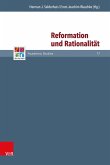It has often been noted that the Protestant Reformation of the early sixteenth century witnessed a revived interest in the scriptural notions of prophets and prophecy. Drawing from both late medieval apocalyptic expectations of the immanent end of the world and from a humanist revival of biblical studies, the prophet appeared to many as a suitable role model for the Protestant preacher. A prominent proponent of this prophetic model was the Swiss theologian and church leader Heinrich Bullinger (1504–1575). This study by Daniël Timmerman presents the first in-depth investigation of Bullinger's concept of prophecy and his understanding of the prophetic office. It also engages with the history of the Zurich institute for the study of the Scriptures, which has become widely known as the »Prophezei«.








